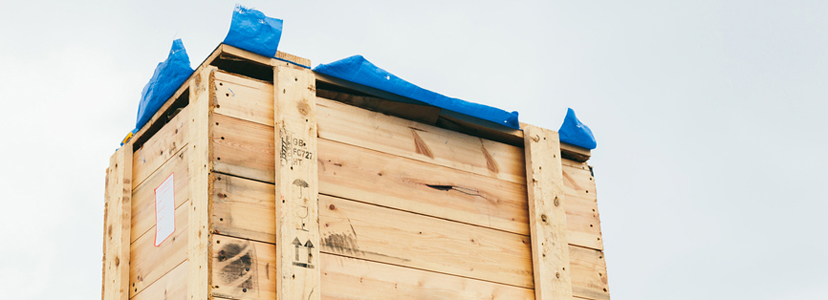Making the case: wooden versus cardboard

Before the inventions of the corrugated cardboard box (in about 1890) and plywood (technically, some 5500 years ago, but more realistically, in about 1850), a traditional wooden crate was just about the only option for packing and shipping goods. It was still the first choice a lot more recently than that, but times have definitely changed, and these days it’s rarely used.
It’s certainly not a viable option for export anymore, thanks to international phytosanitary restrictions designed to prevent the spread of pests, and is likely to be an expensive choice for transporting goods in the UK, as well as being increasingly difficult to source.
Modern business therefore has a choice between corrugated cardboard boxes and plywood crates, both of which can be exported without any trouble and are easy to source from online packaging suppliers, relatively cheaply and at short notice. Each has its advantages, so which should you use for which shipping job and why?
Plywood cases
Plywood is a kind of treated wood, made by gluing together thin layers of wood veneer, with the grain of adjacent layers rotated up to 90 degrees to one another. The main and most evident advantage that it has over cardboard is that it is a good deal stronger, capable of holding and bearing a lot more weight, and holding up better against the kinds of bumps and knocks any parcel is liable to be subject to when in transit.
For that reason alone, it is frequently used as an outer container for export, where those bumps and knocks may be greater and where it may find itself at the bottom of a larger and more heavily loaded pallet – plywood boxes can bear a load of several tonnes. There’s another benefit to that extra strength, which is that plywood boxes can more readily be reused, often many times.
But it’s not just strength that makes plywood popular as an export packaging solution; it also stands up to extremes of damp and humidity better than cardboard, and because it has been treated, it is not subject to those pesky pest restrictions mentioned earlier that stops the use of untreated wood.
It’s not just for export that plywood comes into its own. That superior strength makes it ideal for transporting heavy machinery around the UK. It’s even possible to get your plywood cases in the form of rectangular plywood pallet collars, which you can build up around your load. When it comes to packing, it’s a lot simpler than delicately lowering a large piece of metal into a narrow space.
Corrugated cardboard
After all that, you may be wondering what future there is for the poor old cardboard box, which surely can’t compete with that impressive list of selling points. But, of course, it’s not that simple.
First of all, all that extra strength the plywood case can boast of is inevitably going to come at a price. If you’re shipping machinery to China, it’s a price that’s more than worth paying, but if you’re sending boxes of Corn Flakes to Macclesfield, not so much. Quite simply, for the vast majority of the time the final destination is in the United Kingdom, cardboard boxes will nearly always be your first and best choice.
Plywood is also naturally going to be heavier than corrugated cardboard, so that’s another way you may find it increases your costs.
Even when it comes to export, though, there are still cardboard options that are going to be more than good enough for most products and most destinations. Triple wall boxes can give you 15mm of protection around your product and can easily bear up to about 50kg; on a pallet, you can multiply that number tenfold. Then there are heavy duty double wall boxes, which will increase the capacity of a standard double wall box by about 33%, by using stronger liner paper in the flute.
Both of these are excellent choices for sending goods abroad and, although they may not necessarily come in significantly cheaper than a plywood case of the same size, they will be considerably lighter.
Remy Courtois
Latest posts by Remy Courtois (see all)
- Why Floor Marking will Improve your Business’s Safety - 15th September 2022
- Davpack’s Most Popular Eco-Friendly Products - 16th August 2022
- Reasons your Warehouse Needs Shock and Tilt Indicators - 12th July 2022
